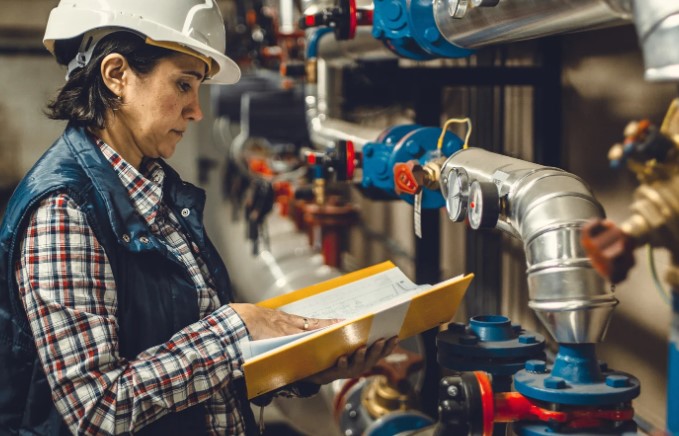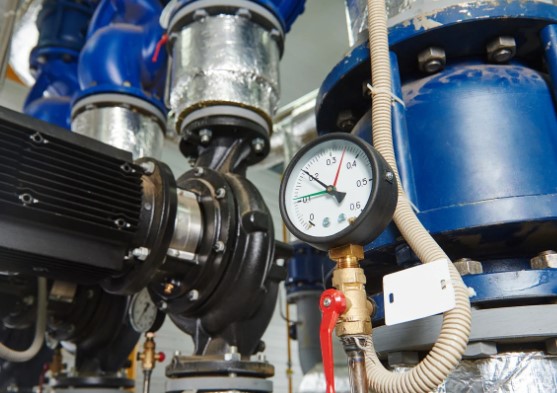- Why Does My Boiler Keep Losing Pressure?
- Understanding Boiler Pressure: Why It Matters?
- Can a Boiler Lose Pressure Without a Leak?
- Common Signs Your Boiler Is Losing Pressure
- Top Reasons My Boiler Keeps Losing Pressure
- How I Diagnosed My Boiler’s Pressure Problem?
- How Do I Fix My Boiler That Keeps Losing Pressure?
- Why Do I Keep Needing to Repressurise My Boiler?
- When to Call a Gas Safe Engineer?
- How Often Should the Pressure Drop on a Boiler?
- Preventing Future Boiler Pressure Loss
- Boiler Pressure Issues: Common Fixes at a Glance
- Conclusion: What I Learned About Boiler Pressure Problems
- FAQs: What I Wanted to Know When My Boiler Lost Pressure
If you’re anything like me, waking up to a freezing house and a boiler pressure gauge sitting in the red zone is never a good sign.
I’ve had my fair share of boiler issues over the years, and one of the most frustrating problems is when the boiler keeps losing pressure.
Whether it’s a combi boiler or a regular system, pressure loss can point to something small—or something more serious.
Let me walk you through the top reasons I discovered and the fixes that worked for me, along with when it’s time to call in the professionals.
Why Does My Boiler Keep Losing Pressure?
This question had me scratching my head more than once. The pressure in my boiler would stay steady one day, then drop unexpectedly the next.
After trial and error, I found that the causes usually came down to leaks, component failure, or user error.
Understanding Boiler Pressure: Why It Matters?
What is normal boiler pressure?
When the heating is off, the normal boiler pressure should stay between 1.0 & 1.5 bar. When the heating is on, it may increase to 2.0–2.5 bar, which is generally safe.
If the pressure drops below 1.0 bar, that’s a sign the boiler is under-pressurised and may not work properly.

Why does boiler pressure drop over time?
Here are some reasons this can happen:
- Small leaks in the system
- Air released during radiator bleeding
- Worn-out components like the expansion vessel or pressure relief valve
Can a Boiler Lose Pressure Without a Leak?
Yes, it can. I used to assume a leak was the only explanation, but that’s not always true.
Air loss during radiator bleeding, a failing expansion vessel, or an open filling loop can all cause pressure loss without a visible leak.
Common Signs Your Boiler Is Losing Pressure
Do you notice cold radiators or no hot water?
The first clue I had was poor heating performance. Some radiators were completely cold, and there were mornings when the hot water just wouldn’t come through.
Is the boiler pressure gauge frequently in the red zone?
If your gauge keeps dipping into the red, that’s a clear warning. I made a habit of checking it daily during the winter, especially if I noticed any heating inconsistencies.
Top Reasons My Boiler Keeps Losing Pressure
Is there a leak in the system? (Boiler Leak Detection)
Small leaks in the system can go unnoticed for a while. I eventually found a slow drip from a radiator valve under my stairs. Common areas to check:
- Radiators and valves
- Boiler casing
- Visible pipework
Could it be a faulty pressure relief valve?
The pressure relief valve (PRV) is the one that is designed to protect the boiler by releasing excess pressure. But when faulty, it can release water constantly.
I checked the discharge pipe and noticed it was dripping even when the boiler was off.
Is the expansion vessel malfunctioning?
This component helps manage pressure as the water in the system heats and expands.
If it’s faulty, you might notice pressure rises when the system is on and drops sharply when it’s off.
Have I recently bled the radiators?
I bled my radiators one autumn and forgot to check the boiler gauge afterward. The system lost pressure because releasing air also releases a bit of water.
Is the filling loop left open accidentally?
Once, I didn’t close the filling loop properly after topping up. That led to overpressure and the PRV kicking in to release water, causing a cycle of pressure loss.

How I Diagnosed My Boiler’s Pressure Problem?
Checking for visible leaks and damp patches
I started by inspecting all radiators and joints with a torch. If spotting any marks of water or even rust generally pointed to a problem.
Monitoring the boiler pressure gauge
I wrote down pressure readings every morning. If it dropped overnight without use, I knew something was wrong.
Listening for strange boiler noises
Unusual gurgling or banging often meant air in the system or water flow issues, both linked to pressure problems.
How Do I Fix My Boiler That Keeps Losing Pressure?
This is how I managed it safely:
Repressurising my boiler using the filling loop
- Switch off the boiler & let it cool
- Located the filling loop
- Slowly opened the valves until the gauge hit 1.5 bar
- Closed both valves tightly
- Switch the boiler back on and reset it if needed
Steps to check the filling loop
- Ensure it’s fully closed after use
- Check for slow drips
- Remove it entirely if advised by the boiler manufacturer

Why Do I Keep Needing to Repressurise My Boiler?
If you’re constantly topping up the pressure, like I was, it usually means:
- There’s a leak somewhere
- A part like the expansion vessel or PRV is failing
- You may have left the filling loop open
In my case, it was a hidden leak under the floorboards combined with a weak PRV.
When to Call a Gas Safe Engineer?
How do I know it’s beyond a DIY fix?
If you find any of these signs, then it is time to call a professional:
- Pressure drops within hours after topping up
- Visible leaks from the boiler itself
- Recurring fault codes or system lockouts
Why regular boiler maintenance matters?
I started getting my boiler serviced annually. It’s cost-effective in the long run and can spot issues before they turn into expensive repairs.
How Often Should the Pressure Drop on a Boiler?
In a well-functioning system, boiler pressure should remain stable for weeks or even months.
Minor fluctuations are normal, but if you’re repressurising every few days or weekly, that signals a deeper problem.

Preventing Future Boiler Pressure Loss
My checklist for keeping boiler pressure stable
- Check the pressure gauge weekly
- Bleed radiators only when necessary
- Shut the filling loop completely after use
- Look out for any signs of leaks
- Book an annual boiler service
Boiler Pressure Issues: Common Fixes at a Glance
| Problem | Visible Sign | Can I Fix It? | Call a Professional? |
| Leak in system | Water under radiators or pipe joints | Sometimes | If leak source is hidden |
| Faulty PRV | Water from external pipe | No | Yes |
| Radiators bled recently | Air noise & lower pressure | Yes | No |
| Faulty expansion vessel | Pressure rises & drops dramatically | No | Yes |
| Filling loop left open | Pressure constantly fluctuates | Yes | Only if unsure |
Conclusion: What I Learned About Boiler Pressure Problems
When my boiler kept losing pressure, I realised it wasn’t something to ignore.
From repressurising the system to identifying hidden leaks, the process taught me a lot. Some problems were easy to fix myself, others needed professional support.
If you’re dealing with low pressure, stay calm, check the basics, and don’t be afraid to get help. A warm, reliable home is worth it.
Related Article: How Long Does It Take to Fit a New Boiler?
FAQs: What I Wanted to Know When My Boiler Lost Pressure
1. Is low boiler pressure dangerous?
It’s not immediately dangerous, but it can prevent your boiler from working and cause strain on the system if left unfixed.
2. Can I use my boiler if the pressure is too low?
Most modern boilers automatically turn off when pressure is too low. I couldn’t even restart mine until I topped it up.
3. How do I stop my combi boiler from losing pressure?
Routine checks and sealing leaks worked for me. Also, avoid frequent use of the filling loop unless necessary.


0 Comments